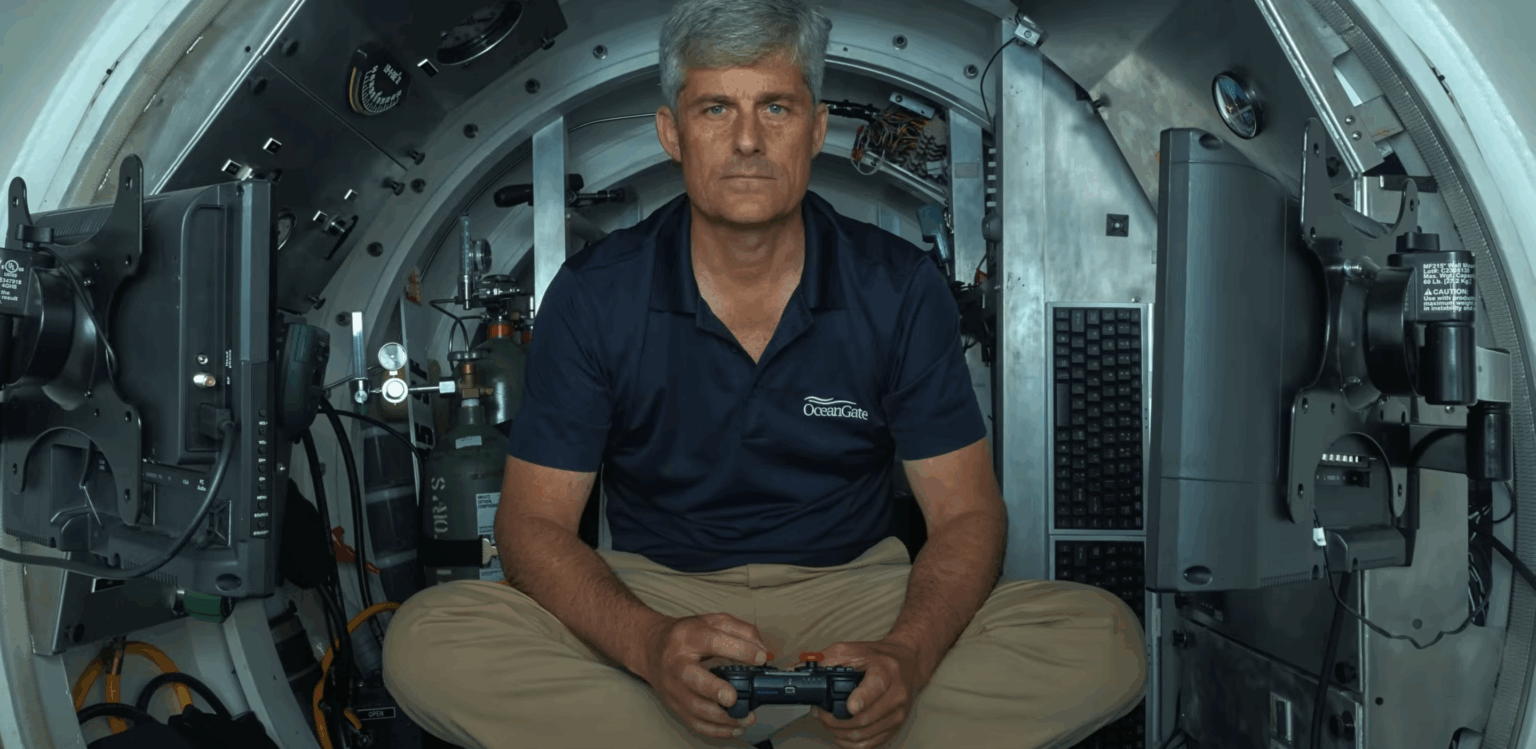Unveiling the Tragedy: The Downfall of OceanGate’s Titan Submersible
A Catastrophic Collapse and Its Aftermath
Two years prior, the world was shaken by the catastrophic implosion of OceanGate’s Titan submersible in the depths of the Atlantic Ocean near Newfoundland. This tragic event, which resulted in the loss of all onboard, has since become a focal point of investigation by the U.S. Coast Guard. Recently, Netflix released a compelling documentary that delves into the circumstances surrounding this disaster, drawing on credible evidence and interviews with insiders close to OceanGate. The film sheds light on the underlying issues that led to the vessel’s failure, with particular emphasis on the controversial leadership of OceanGate’s late CEO, Stockton Rush, one of the five victims of the 2023 incident.
The Netflix Documentary: A Deep Dive into the Disaster
On June 11, Netflix unveiled Titan: The OceanGate Submersible Disaster, a documentary that explores the events leading up to the June 2023 tragedy that captivated global attention and sparked widespread memes and speculation. While the film provides a detailed analysis of the technical flaws-such as the use of carbon-fiber composites that proved vulnerable under extreme pressure-it also critically examines the personality and management style of Stockton Rush. Interviewees describe Rush as a figure marked by arrogance and a volatile temper, traits that arguably contributed to the vessel’s downfall.
Leadership and Personality: The Roots of the Crisis
Former OceanGate engineering director Tony Nissen offers a stark assessment of Rush’s character, describing him as “borderline clinical psychopath” and “a narcissist.” The documentary probes how such a personality could influence the company’s culture and decision-making processes. Rush’s privileged background, with roots tracing back to signers of the Declaration of Independence, is highlighted to illustrate his sense of entitlement and ambition. His vision was to emulate explorers like Jeff Bezos and Elon Musk, but with a focus on oceanic exploration rather than space. His frequent use of the phrase “big swinging dicks” underscores his desire to project dominance and confidence-traits he believed essential for pioneering deep-sea ventures, despite the risks involved.
Philosophy of Ownership and Risk Management
Joseph Assi, a videographer hired by Rush, recounts Rush’s belief that “accessibility is ownership”-the idea that control over a location or resource is defined by one’s ability to reach it. This philosophy drove Rush’s approach to exploration, emphasizing access over traditional notions of safety and oversight. As Assi explains, Rush believed that if you could reach a remote island or deep-sea site, you held a form of ownership, regardless of legal title. This mindset contributed to a culture of risk-taking that often bypassed industry-standard safety protocols.
Systemic Failures and Leadership Flaws
The documentary emphasizes that the root causes of the Titan’s failure stem from Rush’s leadership style. His impatience with thorough testing, refusal to seek third-party validation, and cost-cutting measures-such as using carbon-fiber materials unsuitable for deep-sea pressure-created a hazardous environment. Industry insiders reveal that Rush openly boasted about his influence, even claiming he could “buy a congressman,” which alarmed many colleagues and employees. Such statements reflect a reckless disregard for safety and regulatory compliance.
Rob McCallum, a consultant involved in the project, recalls confronting Rush’s dismissive attitude toward industry standards. When Rush dismissed the need for third-party classification, McCallum felt compelled to sever ties, recognizing the dangerous trajectory OceanGate was on. His departure underscores the systemic issues within the company, driven by Rush’s refusal to accept external oversight or admit mistakes.
Workplace Culture and Ethical Concerns
Rush’s management style extended beyond technical decisions; he was also known for his indifference toward employee safety and accountability. In 2016, during an expedition to the SS Andrea Doria, Rush’s risky decision nearly resulted in disaster. Experienced pilot David Lochridge had to take control to prevent catastrophe, only to be later marginalized and ultimately dismissed by Rush. The film reveals that Rush’s approach often involved sidelining qualified personnel in favor of less experienced staff, such as promoting Bonnie Carl-an HR professional with no submersible piloting experience-to leadership roles.
A Closer Look at the Human Cost
Titan: The OceanGate Submersible Disaster stands out among typical disaster documentaries for its balanced yet incisive examination of a tragedy rooted in human hubris. While the technical details of the implosion are compelling, the film’s true strength lies in its exploration of how toxic arrogance and unchecked ego can lead to catastrophic consequences. Rush’s apparent lack of accountability and his dismissive attitude toward safety protocols serve as cautionary tales for the industry and beyond.
Current Context and Broader Implications
As of 2023, the incident has prompted renewed scrutiny of private deep-sea exploration ventures. The tragedy underscores the importance of rigorous safety standards, third-party oversight, and ethical leadership in high-risk industries. The incident also highlights the dangers of prioritizing ambition over safety, especially when dealing with the unforgiving environment of the deep ocean. The lessons learned from Titan’s demise are shaping new regulations and industry practices aimed at preventing similar disasters in the future.
Conclusion: A Reflection on Human Ambition and Responsibility
The story of OceanGate’s Titan is more than a tale of technological failure; it is a stark reminder of the perils of unchecked hubris and the critical need for responsible leadership in exploration endeavors. As the industry evolves, the hope is that future missions will prioritize safety, transparency, and humility-values that might have prevented the tragedy and saved lives. The documentary serves as a sobering reflection on the cost of human arrogance and the importance of respecting the formidable power of the ocean.

